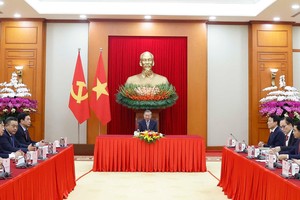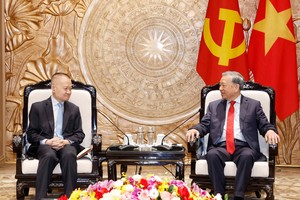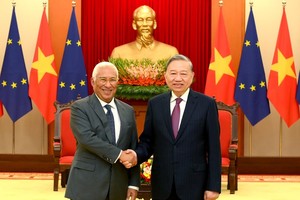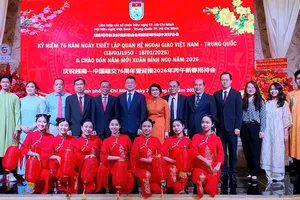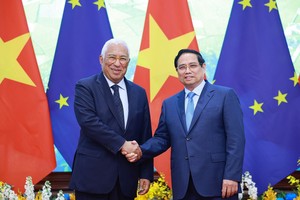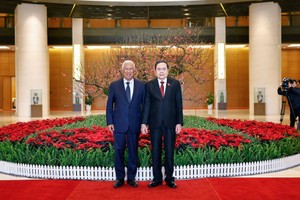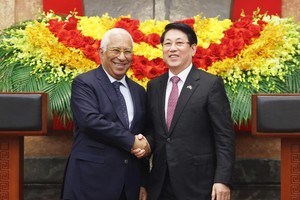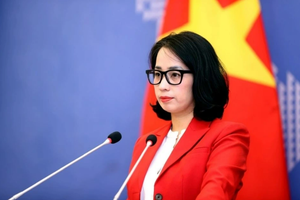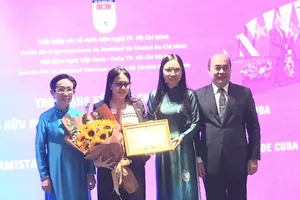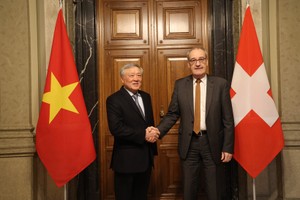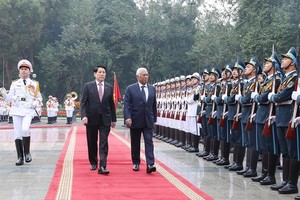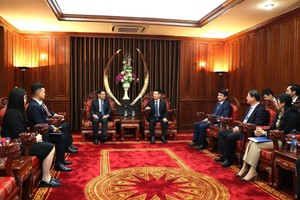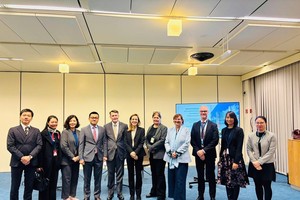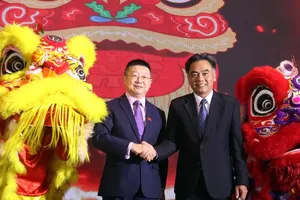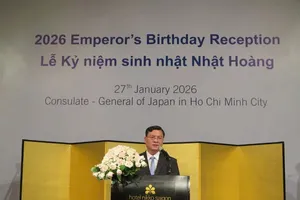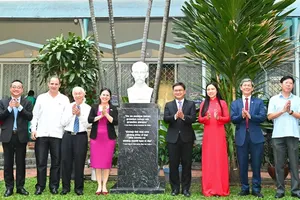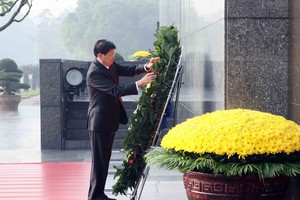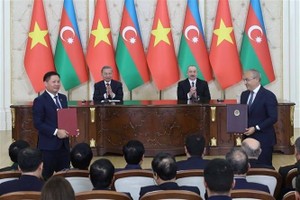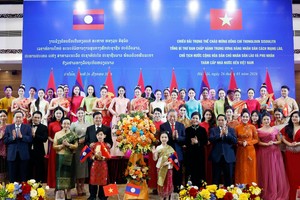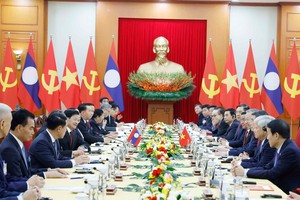Under the leadership of the Communist Party of Vietnam (CPV) over the past 94 years, Vietnam has achieved remarkable strides across diverse sectors, said Prof. G. Jayachandra Reddy, former Director of the Center for Southeast Asian and Pacific Studies at the Sri Venkateswara University in India.
At the 13th National Party Congress (Photo: VNA)
In an interview with the Vietnam News Agency's resident correspondents in New Delhi on the occasion of the CPV's 94th founding anniversary (February 3), Reddy said he was most impressed by Vietnam's progress in national construction, governance, economy, foreign affairs, health care and education.
Highlighting the pivotal role played by the CPV in national construction, Reddy underscored the Party's leadership during the struggle for independence and liberation from the colonial rule. He particularly commended Vietnam's victory in the 30-year resistance war against foreign invaders and the subsequent leadership in the nation's journey towards renovation, industrialisation, and modernisation after reunification.
In fact, Vietnam has overcome numerous challenges both internally and externally during the national construction process, he said, attributing it to the CPV's comprehensive ideological framework based on Marxism-Leninism and Ho Chi Minh Thought.
By grasping objective laws, contemporary trends and the country's realities, the CPV has formulated sound political platforms and revolutionary policies to meet the aspirations of the people, he added.
In the realm of governance, he said Vietnam's robust political system, guided by the CPV, has effectively met the country's needs without deviating from the core of its political ideology. The Government has also modernised its management methods by unifying the macro-management of political, economic, cultural, social, national defence, security, and foreign affairs tasks nationwide through a cohesive system of laws, policies, planning and other macro-management tools.
Regarding the economy, Reddy praised the CPV for shaping the national economy and achieving self-sufficiency in food production. Despite global economic challenges exacerbated by the COVID-19 pandemic, Vietnam maintained an impressive GDP growth rate between 6-7%, positioning itself as one of Asia's fastest-growing economies and enhancing its economic competitiveness.
In terms of foreign relations, he applauded the CPV's strategic efforts in fostering friendly ties with neighbouring countries, bilateral and multilateral cooperation mechanisms, and transforming Vietnam into a sought-after partner globally. Vietnam has become a crucial player in regional and global peace and integration, actively participating in non-permanent membership terms of the United Nations Security Council (UNSC) and playing an increasingly important role in the Association of Southeast Asian Nations (ASEAN) and its partners.
According to the scholar, Vietnam is now at a crucial juncture and requires a greater impetus to continue its upward trajectory. He believed that the CPV is fully prepared to address domestic, regional and global challenges through various proactive and comprehensive measures.
